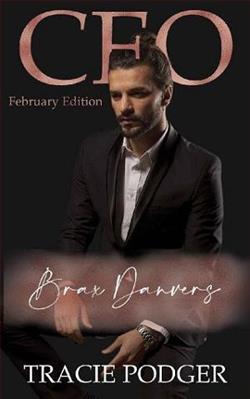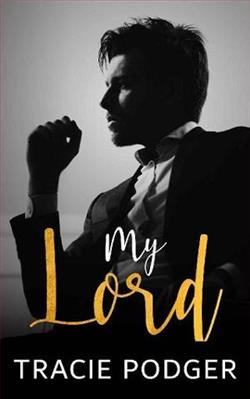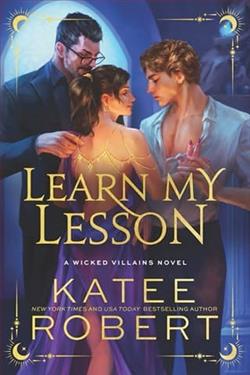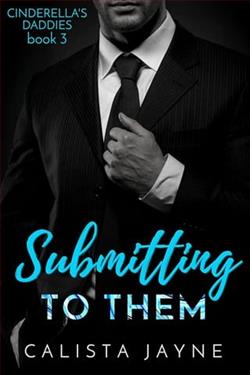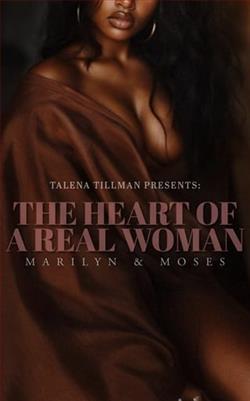Page 72 of Badlands
“I’m no thief.”
“Desecrator.”
“Hold on, that wasn’t me—”
The handler struck him a sharp blow on the back of his head with the club. “Shut up.”
Skip’s headache burst back into his consciousness, temporarily forcing everything else away. He closed his eyes, fighting another spell of dizziness, which gradually passed. When he reopened them, he made an effort to focus on his surroundings. He was atop a steep, long mesa about a hundred feet above the river, but still enclosed within the walls of the broad canyon.
Three other men were gathered at the end of the mesa. They were naked as well, two of them smeared with red clay and wearing the same polished masks and grass headdresses. They were shuffling in a crude circle around one of two tall tripods of lashed poles. Something was hanging from the tripod theycircled. Skip could not make it out clearly from between the passing forms, but as the three stopped again and began a low chant, he saw, with a spasm of terror, that it was a body, beaten and covered in blood, hanging head down from the tripod by a cable. Son of a bitch—it was Edison: hair matted and stiff with curds of blood, tongue lolling.
These motherfuckers had killed him.
“Jesus Christ!” Skip cried out in dismay.
He felt another blow to the back of his head. “I said,shut up,” his handler murmured.
Skip felt himself go weak, sagging down to his knees. His handler jerked him back up with the leash, grabbed his jaw in one meaty paw, turned it upward, then blew some powder he’d cupped in his other paw into Skip’s face.
Skip coughed, choked, and sneezed as he felt the unknown substance enter his nostrils, mouth—even his open eyes. It felt like a million tiny pieces of grit, each of them on fire. He struggled and gagged, even as the fiery pain receded to be replaced by a fog of delirium. What had been men lost focus and became shapes. Skip collapsed onto the ground, but his handler no longer tried to keep him standing. Through blurred and watering eyes Skip could hear—as if from far away—a low chanting arise as the three figures began circling Edison’s corpse. Then, vaguely, Skip saw the leader raise one arm, and something gleamed darkly. It was a dagger, made of flaked stone—long and black and cruel. More chanting… then the three men stopped circling, moved in tighter around the tripod—and, abruptly, screams broke out.
Skip tried struggling to his knees, fell again. The screams were growing louder and louder, throat-shredding, more animal than human… but nevertheless Skip recognized the voice as that of Edison.
So he wasn’t dead after all.
He blinked and blinked, trying desperately to clear the swirling mist from his eyes. But the leader blocked his view and he could not see what was happening. But the screams continued, growing louder and more agonized. Since his hands were bound behind him and he could not cover his ears, he shouted, “Stop it! Please stop it!Stop it! Stop it!”—until the shadow of his handler fell over him, the wooden club came down on him again, and a merciful darkness claimed him.
42
ON LONG DRIVES,Nora often listened to audiobooks, and for her roughly thirty-hour roundtrip drive to Mexico she’d come prepared with a couple of good thrillers by Preston and Child. But the more time she spent on the road driving home, the harder she found it to concentrate. What kept intruding was a melody, an earworm of sorts: the one from the wax cylinder recording that Skip had taken home a transcription of. He’d harmonized it and played it incessantly on his uke, and then gotten her to accompany him on flute, talking excitedly about all that he was going to do with it. And then, in usual Skip style, he’d moved on to some other interest. It was dissonant, unsettling, with quarter tones that were not known in Western music. It sounded a little like that weird, final string quartet of Shostakovich’s maybe. Idly, she wondered what Shostakovich would make of it. But the relief at identifying, and thus ridding herself, of this unsettling earworm gave way to other intrusive thoughts—in particular, what she’d learned from Benicio, and the mystery of Oskarbi supposedly turning to the “dark side.”
Now it was clear Oskarbi was running a cult. And yet, it waslike none she’d heard of before. Oskarbi wasn’t a David Koresh or a Jim Jones. Its members were not a collection of lost souls, brainwashed and shut away in a remote compound. Instead, they appeared to be educated, intelligent, high-functioning professionals who—at least on the surface—lived successful and productive lives. Was it possible—really possible—that people like Molly Vine and Miranda Driver were in a cult? Where and when did they meet? What did they do—and why?
As she drove through the darkness, these questions wove themselves within her brain. And as they did, Nora found herself led inevitably to the question of whether Benicio’s claims of dark powers,duendespirits and an unseen world, were real. Could there be a hidden world behind the real one, accessible through secret rituals or hallucinogenic drugs like peyote? This wasn’t a new concept to her: as an anthropologist, she was well aware that many ancient cultures around the world believed hallucinogens could put you in touch with a hidden and often dangerous world lurking behind the visible. Whatever the cultish dogmas were, Vine and Driver had apparently believed in them passionately enough to commit horrific, ritual suicide.
It was midnight when Nora finally turned into the driveway of the little house she shared with Skip. The place was dark as she pulled her car up next to Skip’s crappy old beater. She was intensely relieved to be home; it had been a grueling trip in more ways than one, and on top of everything else the fifteen-hour drive back had just about fried her brain. She couldn’t wait to get into bed.
She got out of the car and went to the door, inserting her key; she would unpack in the morning. She heard the reassuring barking of Mitty, their golden retriever, and when she opened the door he rushed to her, wagging the entire back half of hisbody in a fervor of welcome, whining and licking her hand. The excitement of the greeting gave her pause; it suggested he had been left alone in the house. She stepped into the kitchen, Mitty following eagerly.
The house felt empty.
Passing through the kitchen and dining area, she went into the hall. Skip’s bedroom door was open. She stepped inside and flicked on the light. The bed was unmade—but then, it was always unmade. She returned to the kitchen. Mitty had been fed and there was water in his bowl—so Skip either was out for the evening, or, if he’d gone away, had arranged for their dog-sitting friend to feed and walk Mitty. But if he was out for the evening, why was his car in the driveway? Had a friend picked him up? Maybe. He did, on occasion, spend the night away from the house, especially if he’d gone to a party and had too much to drink. Or met some woman.
She felt a rising irritation at her irresponsible brother and his doings. But she was tired and it was too late to do anything about it. She’d call their dog sitter in the morning and find out if Skip had engaged her, but for now all she wanted to do was collapse in bed.
The sound of her phone booming out the1812 Overturewoke Nora in a panic. She fumbled at her nightstand and lifted the phone; it was Corrie, calling at seven o’clock sharp.
Jesus. There were times when Corrie was relentless. She swiped the answer bar and put the phone to her ear. “Yes?”
“Nora? It’s Corrie.”
“I know.”
“Sorry to disturb you.” The words tumbled out in a rush. “You must’ve just gotten back. But I’m really anxious to hear what you found out.”
Nora sat up, her head clearing, and tried to focus on the torrent of words. “I didn’t find him. But I learned some things… interesting things.”
“Can we meet in half an hour? I’ve got news for you as well. I’m on the interstate just coming into Santa Fe—I’ve got an interview there at nine. We can grab coffee before.”









